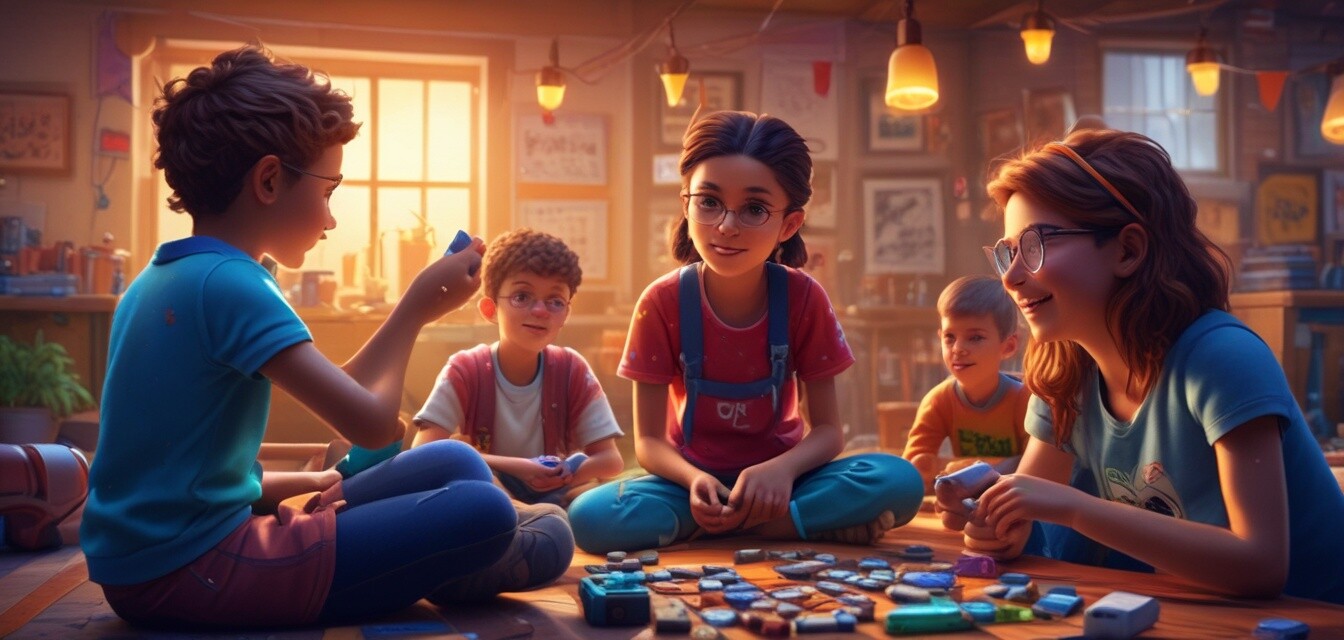
Gaming for Good: How Video Games are Helping Kids Learn
- Video games promote essential skills such as problem-solving and critical thinking.
- Many games foster teamwork and collaboration among players.
- Video games can enhance creativity through interactive storytelling and design.
- The future of educational gaming looks promising, with advancements shaping children's learning experiences.
In 2025, the video game industry continues to revolutionize the way children learn and interact with the world. From problem-solving to fostering creativity, the role of video games in education is becoming increasingly significant. This article explores how certain video games are designed to teach valuable skills, promote teamwork, and foster creativity among children.
The Rise of Educational Video Games
The landscape of children's electronics has shifted significantly. Educational video games are no longer just about rote memorization or learning in a passive way. They actively engage children in various subjects, making learning enjoyable and effective. Here are some of the reasons why educational games are gaining momentum:
- Interactive Learning: Children learn better when they can engage with content actively.
- Real-World Applications: Many games simulate real-world problems that encourage kids to think critically.
- Instant Feedback: Games provide immediate feedback, helping children learn from their mistakes.
Skills Developed Through Gaming
Video games are not just about fun; they can also help children develop crucial skills. Below are some skills that children can learn through video gaming:
| Skill | How Video Games Help |
|---|---|
| Problem-Solving | Puzzles and challenges require children to think critically and create strategies. |
| Teamwork | Multiplayer games encourage collaboration and communication among players. |
| Creativity | Games that allow for customization or creating stories inspire children to think outside the box. |
| Resource Management | Many games require players to manage resources, teaching kids about budgeting and planning. |
The Importance of Teamwork and Collaboration
Certain video games are specifically designed to foster teamwork. Games that require players to join forces to complete tasks not only provide entertainment but also instill a sense of community and collaboration. Here are some examples of teamwork activities in gaming:
- Group missions where each player has unique roles.
- Cooperative challenges that require collective problem-solving.
- Building projects that necessitate working together towards a common goal.
Encouraging Creativity Through Play
Many video games provide opportunities for creativity. From sandbox games where players can build their own worlds to art-focused games that encourage design and creativity, the potential is vast. Here are ways gaming promotes creativity among children:
- Creating Custom Characters: Many games allow players to design their own characters.
- Storytelling: Games with rich narratives prompt players to think critically about plot development.
- Art and Design: Games that involve artistic skills encourage children to express their creativity.
Future Trends in Educational Gaming
The future of educational gaming is shaped by advancements in technology and innovations in game design. Here are some trends to watch for:
- Increased use of virtual reality for immersive learning experiences.
- Gamification of learning processes in classrooms and at home.
- Integration of artificial intelligence to tailor learning experiences based on individual needs.
Conclusion
As we look forward to the future, it's clear that video games will continue to play a vital role in education. The benefits of learning through play are becoming increasingly recognized, paving the way for innovative educational tools that engage and inspire children. With a focus on skill development, creativity, and teamwork, video games are truly helping kids learn in a fun and interactive way.
Tips for Parents
As a parent, you can help enhance your child’s learning through video games by considering the following:
- Choose games that are designed for educational purposes.
- Encourage cooperative gameplay to develop social skills.
- Explore games that allow for creative expression.
Pros
- Promotes active learning experiences.
- Enhances cognitive skills.
- Provides social benefits through teamwork.
Cons
- Potential for screen time overexposure.
- Some games may not be suitable for all age groups.
For more insights on gamification in education, check out our Buying Guides for tips on selecting educational games. You can also explore the latest trends in the gaming industry by visiting our News and Trends section.